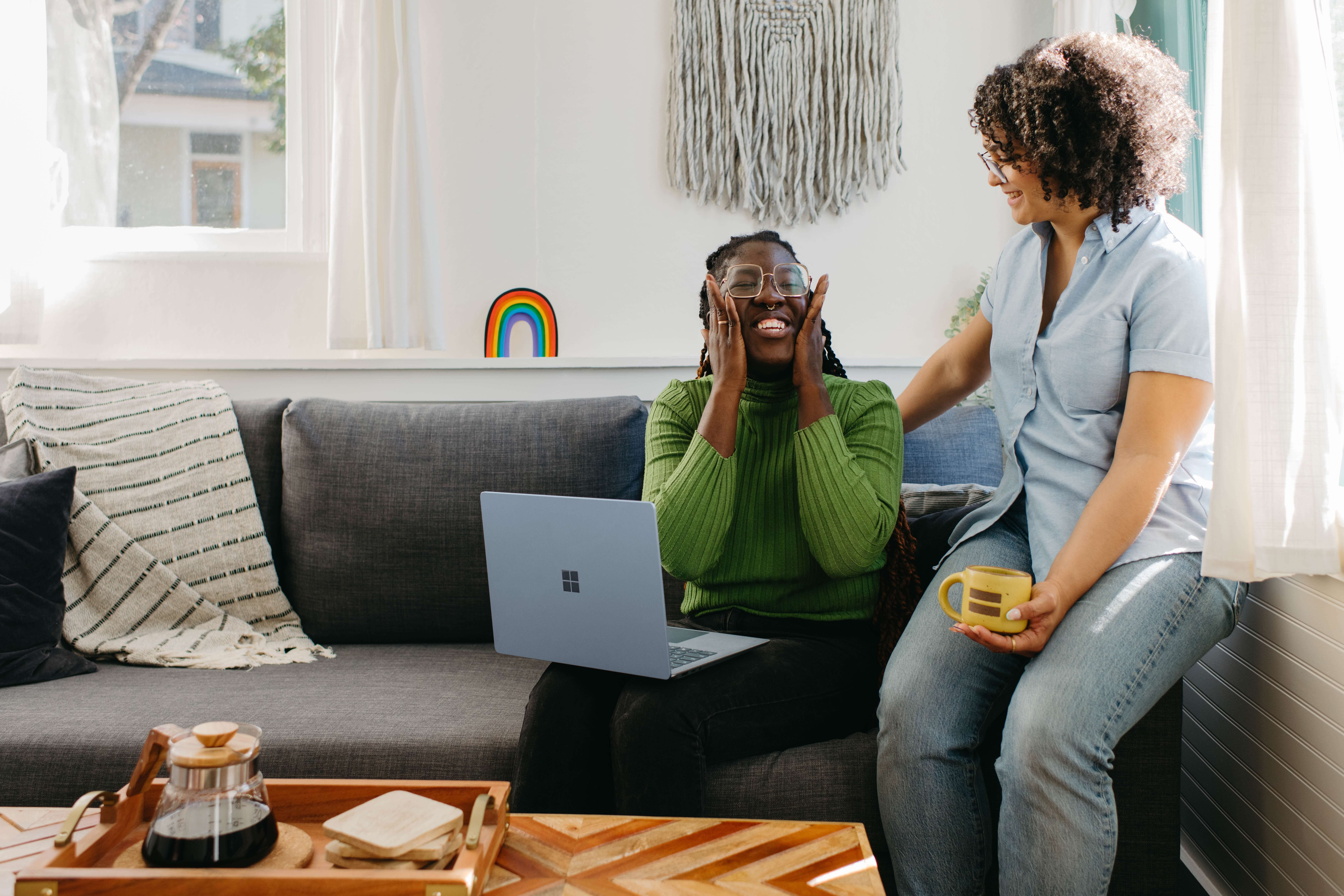Exploring Mental Wellness: Non-Traditional Alternatives to Therapy

Mental wellness is an important aspect of overall health and wellbeing. With the advent of new technology and the rise of non-traditional therapies, individuals now have more options than ever when it comes to improving their mental health. In this article, we will explore the benefits and challenges of non-traditional alternatives to therapy as well as provide examples of some of the most popular options.
Mental health is an important part of overall health and wellbeing. While traditional therapies such as cognitive-behavioral therapy and psychotherapy remain popular and effective, individuals are increasingly turning to non-traditional alternatives to help them improve their mental wellness. These alternatives range from mindfulness practices such as meditation and yoga, to alternative healing modalities such as reiki and energy healing, to holistic approaches such as nutrition and lifestyle changes.
Benefits of Non-Traditional Alternatives
One of the primary benefits of non-traditional alternatives to therapy is that they can be more accessible and cost-effective than traditional therapies. In addition, many of these alternatives are less intimidating than traditional therapies and can provide individuals with the support they need in a more informal setting. Furthermore, non-traditional approaches allow individuals to explore their mental health in a variety of ways, including through creative outlets such as art, dance and music, which can be particularly beneficial for those who are more creative or visual learners.
Potential Challenges
Although non-traditional alternatives to therapy can be beneficial, there are also potential challenges that individuals should be aware of. One of the main challenges is that these alternatives are not always backed by scientific evidence and may not be suitable for individuals with more serious mental health issues. In addition, these alternatives may not be as effective as traditional therapies and may require more dedication and effort on the part of the individual. Finally, non-traditional therapies may not always be covered by health insurance plans, resulting in additional costs.
Examples of Non-Traditional Alternatives
Non-traditional alternatives to therapy can include a variety of activities, such as:
Mindfulness practices, including meditation and yoga
Alternative healing modalities, such as reiki and energy healing
Holistic approaches, such as nutrition and lifestyle changes
Art and music therapy
Exercise as an Alternative to Therapy
Exploring Nature
Virtual therapy
Self-help books
Online communities
Mindfulness practices are one of the most popular non-traditional alternatives to therapy. Mindfulness involves bringing your attention to the present moment and letting go of judgement and expectations. Practices such as meditation and yoga can help individuals become more aware of their thoughts and feelings, leading to greater self-awareness and an improved sense of wellbeing. Research has shown that these practices can reduce stress, anxiety, and depression, as well as improve focus and concentration.
Alternative healing modalities such as reiki and energy healing are also becoming increasingly popular. Reiki is a healing technique based on the belief that energy can be channeled through the body to help promote healing and balance. Energy healing is similar in that it involves the manipulation of energy fields to help restore balance and wellness. These modalities are believed to be effective in treating a variety of physical and mental ailments, including anxiety, depression, and chronic pain.
Holistic approaches, such as nutrition and lifestyle changes, are also gaining traction as non-traditional alternatives to therapy. Eating a healthy, balanced diet, drinking herbal remedies and exercising regularly can have a positive effect on mental health by reducing stress levels, improving mood, and increasing energy levels. Similarly, making lifestyle changes such as reducing caffeine intake, getting adequate sleep, and avoiding alcohol and drugs can also be beneficial for mental wellbeing.
Art, dance and music therapy have become popular non-traditional alternatives to therapy, particularly for those who are more creative or visual learners. Art and music therapy involve the use of creative expression to explore emotions, thoughts, and behaviors, and can be an effective tool for managing mental health issues such as anxiety, depression, and trauma. Research has shown that these therapies can be beneficial in reducing stress, improving self-esteem, and increasing self-awareness.
Exercise is an effective alternative to therapy and can be used to improve physical and mental health. Regular exercise can help reduce stress, improve mood, and increase energy levels. It can also be used to combat depression, anxiety, and sleep issues. Exercise is a great way to gain self-confidence and improve overall wellbeing.
Exploring nature is another non-traditional alternative that can be beneficial to mental and physical health. Spending time outdoors in natural settings can reduce stress and improve overall wellbeing. Research has shown that nature can reduce feelings of depression and anxiety. Nature can also help improve concentration and focus, reduce blood pressure, and improve mood.
Virtual therapy is a form of telehealth that allows patients to access counseling services through video conferencing, phone, or text messaging. This can be a great way for those who are unable to visit a therapist in person to receive professional help. It also allows for more flexibility in scheduling and can be more affordable than in-person therapy.
Self-help books are another great way to access mental health support. They can provide insight and guidance on how to manage mental health issues such as anxiety, depression, and trauma. These books are often packed with practical advice on how to cope with difficult emotions, thoughts, and behaviors. Reading good be one of Non-Traditional Alternatives to Therapy.
Online communities are a great way to connect with people who are going through similar experiences. They can provide emotional support, resources, and a sense of belonging. Many online communities have private forums where people can discuss their struggles, share advice, and support each other. They can be a great way to find comfort and understanding in a safe and supportive environment.
There could be more types, like massage, acupuncture, chiropractic, tai chi, complementary therapies, animal therapy, homeopathy, aromatherapy and so on. You can find some mental health apps. Find what would be good for you.
In conclusion, non-traditional alternatives to therapy provide individuals with a more accessible and cost-effective option for improving their mental wellbeing. Mindfulness practices, alternative healing modalities, holistic approaches, art and music therapy, virtual therapy, self-help books and online communities are just a few of the non-traditional options available. While there are potential challenges associated with these alternatives, they can be beneficial for individuals looking to explore their mental health in a more informal and creative way.
Are there any self-help techniques for improving my mood?
Yes, there are many self-help techniques that can help improve your mood. Here are a few to consider:
Exercise: Studies have shown that physical activity can help reduce stress and improve mood.
Eat Healthily: Eating a healthy, balanced diet can help your body and mind stay in a good state.
Spend Time Outside: Fresh air and sunshine can do wonders for your mental wellbeing.
Practice Mindfulness: Mindfulness can help you focus on the present moment and be aware of your thoughts and feelings.
Get Enough Sleep: Sleep is essential for maintaining good mental health. Try to get at least 7-8 hours of sleep each night.
Talk to Someone: Talking to a friend or family member can help you work through your feelings.
Take Time for Yourself: Make sure you take time for yourself by doing things you enjoy. By following these tips, you can help improve your mood and overall wellbeing.
Are there any holistic methods for managing stress?
Yes, there are a variety of holistic approaches to managing stress. The most common methods include mindfulness and meditation, deep breathing exercises, physical activity, and self-care such as getting enough rest and eating a balanced diet. Mindfulness and meditation involve focusing on the present moment and being aware of your thoughts and feelings without judgement. Deep breathing exercises help reduce stress by calming the mind and body. Regular physical activity helps to reduce stress hormones and can be done in the form of yoga, walking, or other forms of exercise. Lastly, taking care of yourself is important for managing stress. This includes getting enough rest and eating a balanced diet. Practicing these holistic approaches can help to reduce stress and improve overall wellbeing.
Are there any natural ways to alleviate depression?
Yes, there are a number of natural ways to alleviate depression. Exercise is a great way to boost your mood, as it releases endorphins that naturally increase your happiness and overall wellbeing. Research has also found that spending time in nature can help reduce symptoms of depression, as it can help to improve your mood and reduce stress. Eating a balanced diet can also help to support your mental health, as certain nutrients can help to improve your mood. Additionally, taking time to practice mindfulness or relaxation techniques such as yoga and meditation can help to reduce symptoms of depression. Finally, getting enough sleep is important for overall mental health, as it helps to regulate your mood and keep stress levels in check.
Are there any alternative therapies for dealing with grief?
Yes, there are many alternative therapies available for dealing with grief. Depending on your individual needs, some of the most popular alternative therapies for grief include art therapy, music therapy, journaling, and yoga. Art therapy can be used to express emotions through the creative process and can help process grief in a more productive way. Music therapy also provides an outlet to express emotions related to grief and can help you process and move through your grief. Journaling can be a powerful way to document your grief journey and can help uncover underlying beliefs and emotions. Finally, yoga can help bring a sense of peace and balance to your life, which can help you cope with the grief. Ultimately, the right therapy for you will depend on your individual needs and preferences, so it's important to discuss the various options with your mental health professional.
Are there any non-medical treatments for emotional difficulties?
Yes, there are many non-medical treatments available for those experiencing emotional difficulties. Cognitive Behavioral Therapy (CBT) is a type of therapy that can help individuals identify and manage their thoughts and behaviors in order to reduce anxiety and depression. Other forms of psychotherapy, such as Dialectical Behavior Therapy (DBT) and Acceptance and Commitment Therapy (ACT) can also be effective in helping people address their emotional difficulties. Additionally, lifestyle changes such as exercising regularly, eating well, getting proper sleep, and connecting with supportive people can help to improve moods and reduce stress. It is important to remember that everyone's experience with emotional difficulties is different, so it is best to speak with a mental health professional to find the right treatment plan for you.
Finding the Right Alternative to Therapy
When it comes to finding the right alternative to therapy, it’s important to consider your individual needs and preferences. Different modalities may be more or less suitable for different individuals, and what works for one person may not work for another. It’s important to do research and find out as much as you can about the different alternatives available and talk to professionals if necessary.
It’s also important to remember that non-traditional alternatives to therapy are not a substitute for professional help. If you are struggling with mental health issues, it’s important to seek professional help. Non-traditional alternatives can be a great supplement to traditional therapies, but they should not be relied on as a primary form of treatment.
Taking Care of Your Mental Well-being
Taking care of your mental wellbeing is an important part of overall health and wellbeing. Non-traditional alternatives to therapy can be a great way to explore your mental health and find ways to improve it. However, it’s important to remember that these alternatives are not a substitute for professional help. If you are struggling with mental health issues, it is important to seek professional help.
In addition to non-traditional alternatives, there are also simple lifestyle changes that can have a positive effect on your mental health. Eating a healthy, balanced diet and exercising regularly can help reduce stress levels and improve mood. Making time for yourself and engaging in activities that bring you joy can also be beneficial. Finally, it’s important to make sure you are getting adequate sleep as lack of sleep can have a negative impact on mental wellbeing.
Overall, mental wellness is an important part of overall health and wellbeing, and non-traditional alternatives to therapy can be a great way to explore your mental health and find ways to improve it. It’s important to remember that these alternatives are not a substitute for professional help and that there are also simple lifestyle changes that can help promote mental wellbeing.
Conclusion
Non-traditional alternatives to therapy can be beneficial for individuals looking to improve their mental health and wellbeing. While there are potential challenges associated with these alternatives, they can provide individuals with a more accessible and cost-effective option for exploring their mental health. Examples of non-traditional alternatives include mindfulness practices, alternative healing modalities, holistic approaches, art and music therapy, virtual therapy, self-help books and online communities.

